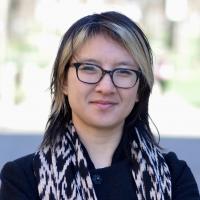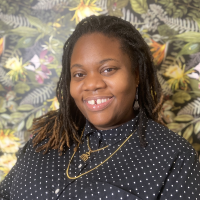Three of the twelve projects that recently received funding through the Chancellor's Call to Action Research Program to Address Racism and Social Justice are led or co-led by iSchool researchers. The program is a $2 million annual commitment by the University of Illinois to respond to the critical need for universities across the nation to prioritize research focused on systemic racial inequities and injustices that exist not only in communities but in higher education itself.
Anita Say Chan, associate professor and director of the Community Data Clinic, will lead “Activating a Peer-to-Peer Train the Trainers Network for Digital Equity Network in East Central Illinois: Advancing Racial Justice in Non-Profit Digital Navigation Programs,” a project which received funding in the amount of $100,000. Research Program Manager Julian Chin will serve on the leadership team.
The "Peer-to-Peer (P2P) Train-the-Trainers for Broadband Equity" Digital Navigators Program is an initiative led by the Community Data Clinic and the Urbana-Champaign Big Broadband (UC2B) nonprofit to address broadband and digital inequity in East Central Illinois, especially among marginalized and underserved populations. Through a partnership with the Housing Authority of Champaign County, Cunningham Township, Project Success of Vermilion County, Champaign-Urbana Public Health District, and FirstFollowers, Chan's project will establish a Digital Navigators Network and develop a new East Central Illinois Broadband Equity Community Hub in the Champaign Park District's multipurpose Martens Center. Thirty-six community members will be trained as Digital Navigators, receiving laptops and educational resources. According to Chan, the Chancellor's funding will support six iSchool students' research assistantships on this project.
Ian Brooks, research scientist and director of the Center for Health Informatics, will serve on the project leadership team for "Development of SPICE-Healthcare: Supporting Personalized and Inclusive Cuisines in Environments for Healthcare," which received $68,210. This project will build the foundation for a web-based platform that will enable clinicians to conduct and provide culturally and medically tailored nutrition assessments and care plans to diverse older adults. An interdisciplinary team of experts will work with a community partner, ClarkLindsey Village, to build, refine, and test a prototype of SPICE-Healthcare. The team will then gather feedback from the culturally diverse long-term care personnel, clinicians, older adults, and their family caregivers to ensure the development of a platform that promotes health equity in long-term care settings.
PhD student Stephanie Posey will serve on the leadership team of "Impact of School Closings," which received $100,000. Black parents, Black students, Black teachers, and Black community members impacted by school closures in Chicago will receive training in qualitative research methods and collect visual, oral, and written testimonies from their peers. The research teams will develop publicly accessible artifacts (research briefs, visual media, audio media, etc.) to ensure that these narratives of the impact of school closures are available for parents, students, teachers, and community members across Chicago, the state, and nation.



